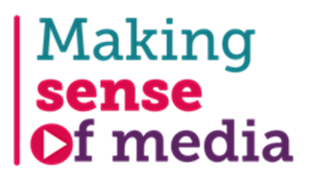By Dr. Alison Preston, Co-Director, Making Sense of Media
Ofcom has a statutory duty to promote media literacy, and the UK Government intends to further strengthen Ofcom’s role in this area with the passage of the Online Safety Bill.
Making Sense of Media is Ofcom’s programme of work to help improve the online media literacy of UK adults and children, through providing robust research, and collaboration with/coordination of relevant stakeholders and their activities.
As well as Ofcom’s foundational research monitoring adults’ and children’s media literacy, they are developing a range of additional ways to understand what people are doing online, what their attitudes are, and how these change over time.
Ofcom also wants to understand how effective media literacy initiatives are – what works, what is less effective, and which component parts can be transferred into other initiatives as best practice.
Their work will increasingly focus on building this evidence base, collaborating with a range of practitioners to ensure that best practice can be shared and developed: in other words, focusing on “what works”.
Evidence of people’s habits, behaviours and attitudes are a crucial component of Ofcom’s statutory duties. Such evidence helps them – and others – to identify trends and to spot emerging issues. Online, there are a multitude of potential ways to understand and measure behaviour, each with their strengths and weaknesses.
Ofcom commissioned three reports, published on Wednesday 9thJune 2021 alongside their flagship Online Nation report, which collectively address these issues and provide new insights into online behaviour. They offer a contribution to debates around how to collect and synthesise data; how to understand habits and perceptions about misinformation; and what might be most effective in countering misinformation according to reviews of current media literacy initiatives.
Ofcom’s focus on misinformation is an outcome of the Covid-19 pandemic, and the widespread societal concern over the potential role that misinformation has played. They know from their Covid-19 news and information tracker that over the last year, around three in ten UK adults said they came across it each week, and a further quarter of adults were unsure whether or not they had – indicating some uncertainty about what to trust in terms of news and information.
The three publications can be accessed here:
- Automated approaches to measuring online experiences (PDF, 4.1 MB). This summary report from Faculty provides an assessment of the existing range of online automated tools, within a framework for measuring online experiences. It outlines current providers and the legal, ethical and other considerations to be addressed when using such tools.
- Misinformation: A qualitative exploration (PDF, 954.1 KB). This qualitative research from Yonder provides an in-depth understanding of people who self-identified as either ‘questioning’ or ‘rejecting’ the mainstream media. The goal was to develop a richer understanding of how such people interact with news and information online, and their opinions and categorisation of various types of misinformation.
- Rapid Evidence Assessment on Online Misinformation and Media Literacy (PDF, 1.3 MB). This review by LSE Consulting (led by Professor Lee Edwards) summarises recent evidence, largely from academic research literature, on work being done in the field of media literacy to address misinformation. It analyses 201 papers (out of an initial sift of thousands).
Comments and feedback on these reports is welcome. If you would like to get in touch please email makingsenseofmedia@ofcom.org.uk.
